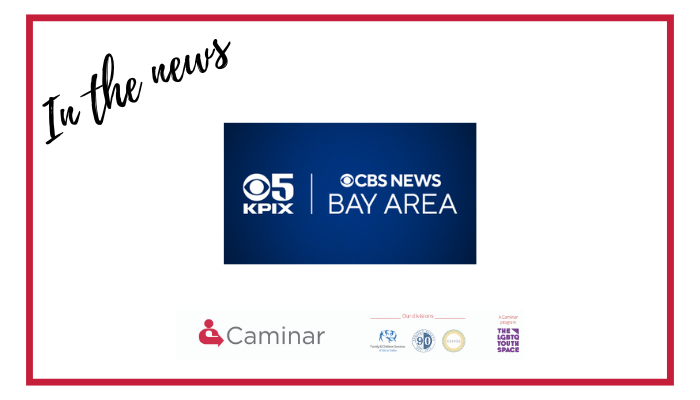Caminar Mental Health was hiring for Laura’s Law Assisted Outpatient Treatment (AOT) Program* (More information on this program at the bottom of the page):
- Case Managers
- Assistant Case Managers
- Community Support Workers
- Job Coaches
Caminar is a nonprofit agency with 50 years of experience providing community-based support services for people with disabilities. Caminar services are designed to enable adults and older adults with mental health, physical and developmental disabilities to live and work in their community in accordance with their ability and desire. Our mission is to improve the quality of life for people with disabilities by providing opportunities to live in the community with dignity and independence. The agency employs approximately 300 of the most dedicated and professional staff serving the communities of San Mateo, Solano and Butte counties.
Case Manager (FT)
Under the supervision of the Program Director, the Case Manager provides rehabilitation services to adults with psychiatric disabilities living in or in transition to the community in San Mateo County. The case manager is responsible for overseeing the provision of individual services to these clients and works in conjunction with community support workers that are assigned to provide medication support and assistance with activities of daily living. The case manager assists in the design and implementation of treatment goals, is an advocate for clients; provides crisis prevention and intervention when necessary; and helps plan a program including the utilization of community resources to enhance the individual’s quality of life.
Requirements:
- Candidates registered with the California BBS are strongly encouraged to apply; licensed supervision hours available.
- BA/BS in a mental health related field. Absent BA/BS, a minimum two-years (4000 hours) of verifiable program experience in the provision of direct services to individuals with severe mental illness is required.
Assistant Case Manager (FT/PT)
Under supervision of the Program Director, the Assistant Case Manager provides services to clients including but not limited to assessment, counseling, crisis intervention, and medication management.
Requirements:
- High School Diploma or GED is required. Bachelor’s degree in psychology or mental health related field is preferred.
- Minimum one year of demonstrated work experience with SMI/DD is preferred
Community Support Worker (PT)
The CSW is responsible for providing community-based support services to mentally ill adults using a recovery based model and systems integration approach to services delivered. CSW’s are expected to work a schedule of no less than 15 hours per week. Candidates must be flexible to adjust to the needs of a fast paced environment, demonstrate effective problem solving skills and prioritize duties daily.
Requirements:
- High School Diploma or GED is required. BA in psychology or related field preferred.
- Must be available to work morning, evening and weekend shifts on a short notice and overtime when required. Ability to work no less than 15 hours weekly with a flexible work schedule required.
- One year of demonstrated work experience with SMI/DD preferred.
Also hiring Job Coaches!
Laura’s Law Assisted Outpatient Treatment (AOT) is court-ordered treatment for individuals with SMI who meet strict legal criteria and do not voluntarily accept treatment. Laura’s Law permits law enforcement, medical professionals, and family members to request the County mental health director to petition the court to provide AOT for individuals with serious mental illness. In order to be candidates for this program, individuals must also (1) have a recent history of hospitalization or violent behavior, and (2) be noncompliant with a voluntary treatment plan that indicates the individual is or is likely to become dangerous or gravely disabled without AOT. The purpose of this program is to assist these individuals to achieve independence, stability and wellness within the context of their cultures and communities. The program is meant to offer alternative models of care which offer greater benefits to consumers who are historically avoidant of traditional treatment models with the goal of diverting from the criminal justice system and/or acute and long term institutional levels of care. This is achieved through strategies relating to housing, employment, education, recreation, peer support and self-help that will engender increased collaboration with those systems and sectors.





